Five weeks ago, the LHS Director of School Counseling, Ms. O’Dea sent an email addressed to parents and guardians, and then forwarded that same email to teachers, detailing problems she had heard about (from a counseling email blast) in the popular Netflix series, “13 Reasons Why.” The email offered resources for struggling students as well as suggested discussion questions between students and parents about the series and about mental health topics in general.
Both before and after the series was released, schools in the area also sent out emails to parents, and several national and local publications, including the Union Leader, published articles discussing suicide prevention.
To start, we found the media frenzy odd. Suicide isn’t a new issue and while the show is newly popular, the issues brought up aren’t new, and neither is the plot. (The novel which the show was based off of came out in 2007).
On top of this, we found that this was a strange time for an email from a member of administration. There are plenty of other shows which have touched upon teenage suicide, depression, and anxiety. We even read books in school which touch on these topics, from “Romeo and Juliet” in freshman English (the ultimate romanticized suicide) to “Dead Poets Society” as a junior.
And why weren’t we warned about shows like “Cyberbully” (2011) on ABC Family, or “The Fosters” (2015) on Freeform, which both showed an attempted suicide? What about “A Girl Like Her” (2015) on Netflix, which centered entirely around the aftermath of an attempted suicide?
While it is true that some other shows that mention suicide don’t focus solely on it in the way “13 Reasons Why” does, they still delve into the topic and bring up the same questions about how to handle mental illness. Most shows popular with teenagers on TV or Netflix grapple with difficult topics like suicide, LGTBQ+ rights, rape, drugs or alcohol, but no show before “13 Reasons Why” has warranted an email home to parents.
In a recent interview with O’Dea, she said that is because this show is on Netflix and not on regular TV, so she believes parents may be unaware of what shows their children are watching.
“Parents have more of an avenue to see what’s on a TV than they do on Netflix,” O’Dea said. “Mental illness is an area that is the elephant in the room. People don’t necessarily talk about it. Mental illness is definitely something that impacts so many people and just being able to reach out to somebody and say ‘are you okay?’ can make a world of difference.”
O’Dea also said that she believes the show is hitting a younger audience, and that suicide is a bigger issue than rape or bullying, so shows which grapple with only those topics don’t get the same treatment.
“The unfortunate aspect of suicide is that someone is dead,” O’Dea said. “Someone has killed themselves. There is a loss that can never come back. With the transgender, with rape, with a lot of other issues, that’s not necessarily the case.”
However, don’t issues like bullying, LGBTQ+ rights and rape often contribute to suicide? That is certainly true in “13 Reasons Why,” where Hannah is bullied and raped—her rape being the final straw that drives her to kill herself.
We understand that there were good intentions behind sending an email informing parents of the controversial show. That being said, we found that the email O’Dea sent to LHS parents and staff was poorly crafted, and at the very least, careless. Especially considering that O’Dea has never viewed the show herself.
When O’Dea was asked about watching the show, she said, “I don’t know that I want to [view the show] and my reason behind [that decision] is that as much as I want to see it and know what the hype is about, I don’t want to contribute to the hype. By being another person that views it, it shows how popular it is.”
While we understand the personal choice not to view the show, it’s still unprofessional to send an email that makes it seem like you know what you’re talking about when you don’t. We know it may not be realistic to expect her to watch the show before sending out a timely email, but at the very least she should have read the book or Sparknotes. Doing anything to become informed about the show would have given the email credibility.
Parents have a level of trust with the administration that the information being sent home has been properly vetted and accurately represents the present situation. The fact that O’Dea sent home an email warning parents about a show that she has not seen is irresponsible, especially because there are so many mixed reviews from mental health professionals. Simply Google “13 Reasons Why,” and you can easily see the differing opinions from credible sources surrounding the show.
O’Dea said she originally heard about “13 Reasons Why” from a counseling listserv, which is an email blast list for guidance directors, principals and counselors. The listservs send information about current events that could affect students to anyone who has signed up.
“Sanborn, their principal, had sent out and put on their website [an article about] ‘13 Reasons Why,’” O’Dea said. “And right after that, NAMI (the National Alliance for Mental Illness) had sent something out, and so I kind of crafted the email from both of those [articles].”
It is understandable to gather information from outside sources before writing an email. But we think “crafted” is an odd word choice since the entirety of the email’s content was directly copied and pasted from several different sources without proper citations. The way the email was written sounded like O’Dea has come up with these opinions on her own, however, we found the different articles (including Sanborn’s newsletter) she took her information from, word for word after a simple search.
It should be noted that the newsletter from NAMI, from which large sections were directly copied, did read “Enclosed is a sample letter, which you can adapt as you wish, if you chose to use it.” However, we still find using the entirety of the ‘suggested’ letter with the additions for Sanborn, not citing it, and not using a single original idea, irresponsible. Not a single line in the entire letter was original to O’Dea or specific to LHS, and the fact that the information was from outside sources and outside opinions was never mentioned.
O’Dea said her motivations behind sending the email were to make parents aware of what students might be watching and to be able to, “open the lines of communication.”
But how can the lines of communication be opened when the email sent home was completely biased? While the email does not specifically tell students not to watch the show, it certainly was interpreted that way by students and parents. After all, perception is reality. It makes clear communication harder between students and their parents when only one side of the issue is presented.
In theory, presenting parents with information about mental health is an excellent idea, and we fully support mental health discussions and awareness. But “13 Reasons Why” has elicited very different responses from mental health professionals, parents and teenagers. To only present one side of this mental health discussion to parents, and to present that side as fact, is, at the very least, problematic.
If the email had just made parents aware of the show (and other similar shows), offered resources, and demonstrated that this is a complex topic with trained psychologists having many different opinions, we wouldn’t be writing this article. This email should have told parents that this show was out there, presented mental health resources, and been specific to Londonderry.
It was none of these things.
O’Dea said in our interview that she also sent the email because she was concerned that the fictional show was misleading and didn’t give enough information to viewers.
However, we are once again unaware of how she formed this opinion without viewing the show for herself.
“I had just come back from a mental health training the week before, and in my mind it really solidified that you can’t take a back seat to [these issues],” O’Dea said. “Mental health is something that I don’t think gets enough attention.”
We agree with O’Dea here. Mental health is something that is not discussed enough. And what is LHS doing about it?
Our current suicide prevention policy is that when a student comes forward or expresses suicidal ideation, their parents and mental health professionals are contacted. But to us, that isn’t prevention. This is a call to action for LHS to step forward and talk more about mental health, and start the process of removing the stigma surrounding these issues.
The real world isn’t rainbows and butterflies all the time, and shows popular with teenagers usually reflect that. No one is there to shelter us from real issues like suicide, bullying, drugs, or alcohol.
We understand that as seniors we are a bit more mature than freshmen just entering high school. Younger students may interpret the show differently and may not understand all the details in the show, so perhaps for parents with freshman students or for middle school parents a purely informational email would be helpful.
But as an adult ready to enter the real world, having a biased email about a Netflix show we’d already watched (about a book we read as 5th and 6th grades respectively) sent to our parents, and not to us, was condescending.
When O’Dea was asked about why the email wasn’t sent to students, she responded that it was because there is no email list to contact students.
But wouldn’t a show that is deemed important enough for an email home warrant an assembly or at the very least an announcement? Again, we can only talk from a student’s perspective, but the fact that the email went over our heads and directly to our parents made us feel out of the loop about something that is highly relevant to us. If mental health really is the “elephant in the room,” as O’Dea said in our interview, then you do more than send an email to parents about a Netflix show.
And as two 18-year-olds leaving LHS in a couple weeks, with critical thinking skills and an ability to analyze characters, the suggestion that we are unprepared to discuss topics such as depression, sexual violence, bullying, suicide or LGBTQ+ rights is insulting. It also ignores the fact that these are issues members of Lancer Nation—from freshmen to seniors—face on a regular basis in some form or another.
While resources should be directed to those struggling with mental illness, more focus should also be put on preventing bullying and making sure LHS feels safe for everyone. That was the ultimate message of “13 Reasons Why” and why it is worth a watch.
As Clay says in the final episode, “We have to do better. The way we treat each other. We have to look out for each other. It has to get better somehow.”





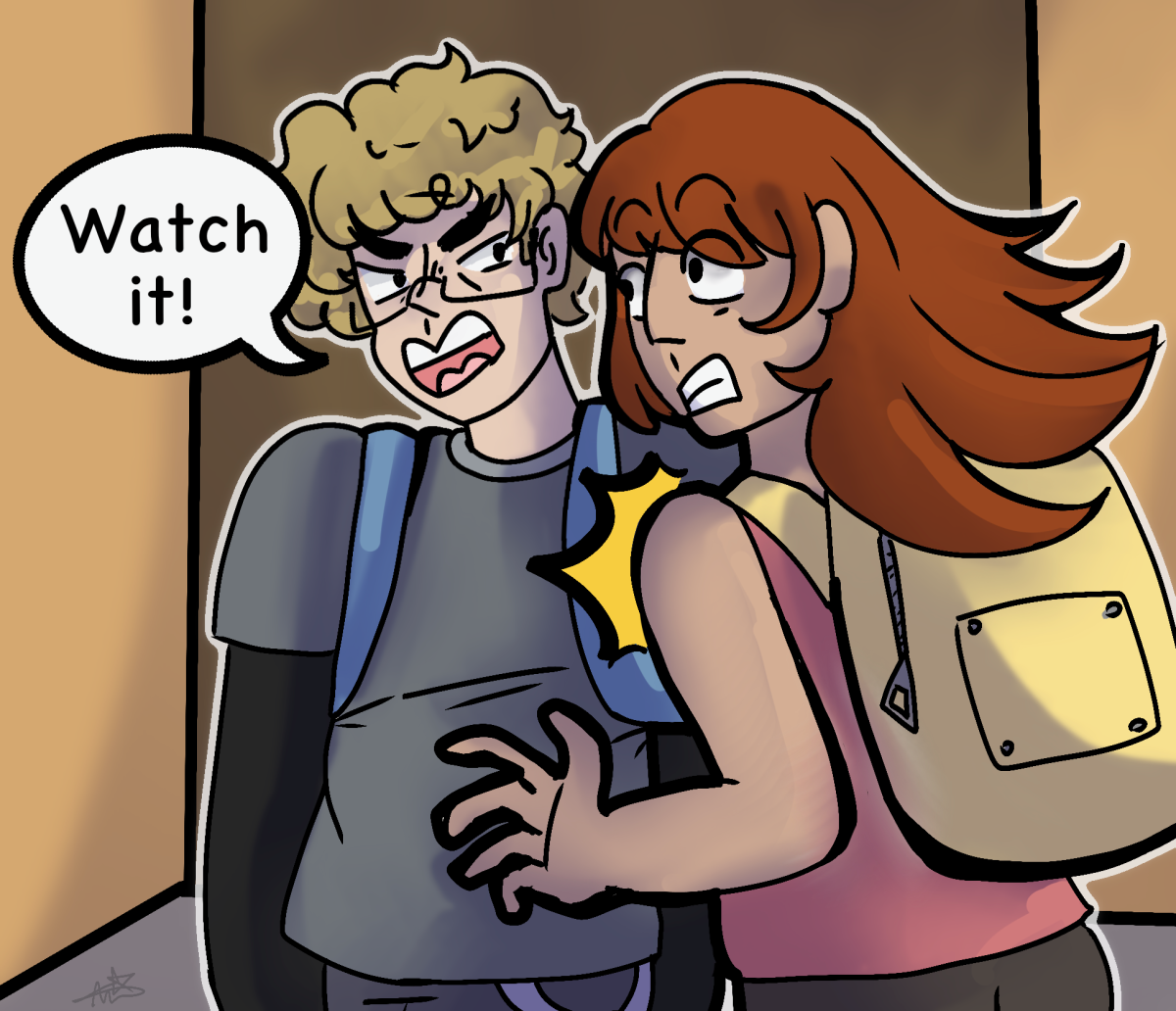
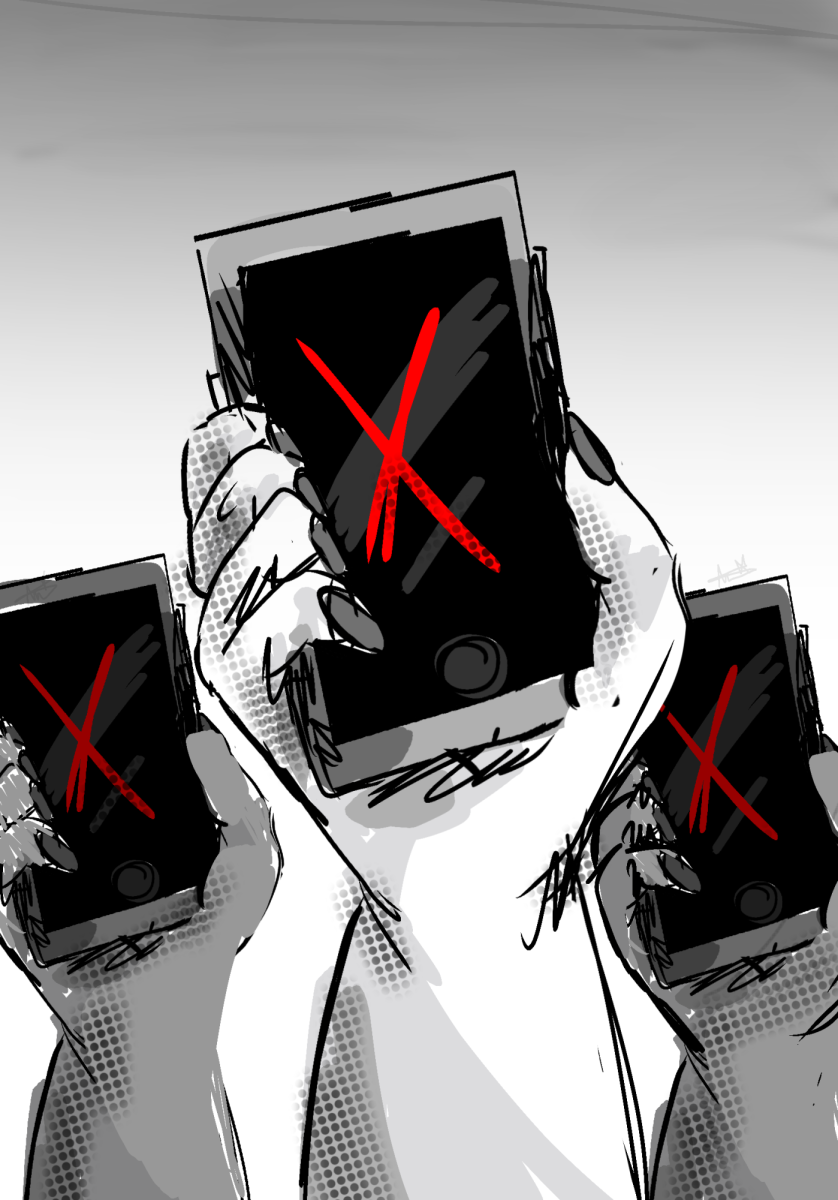
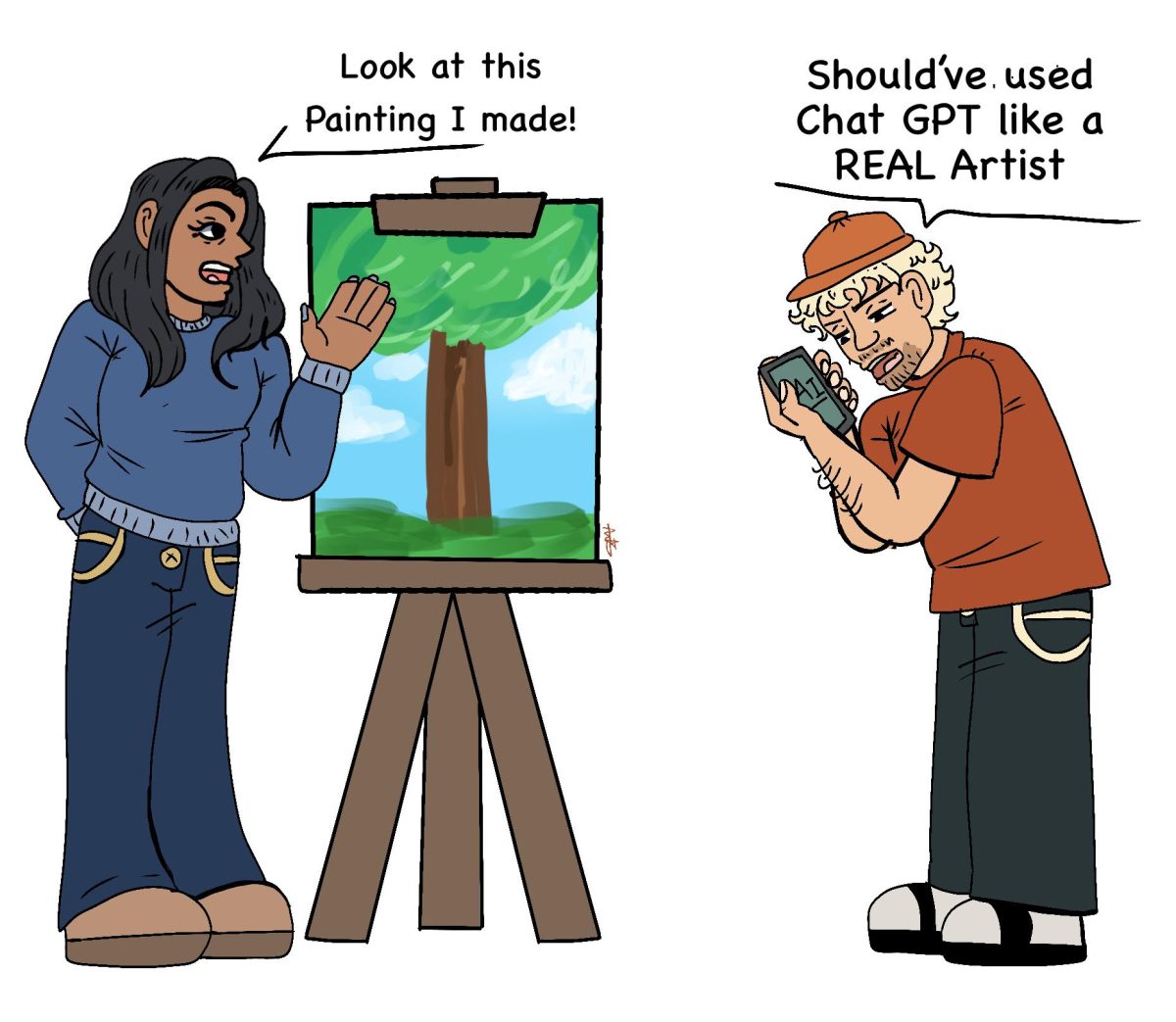

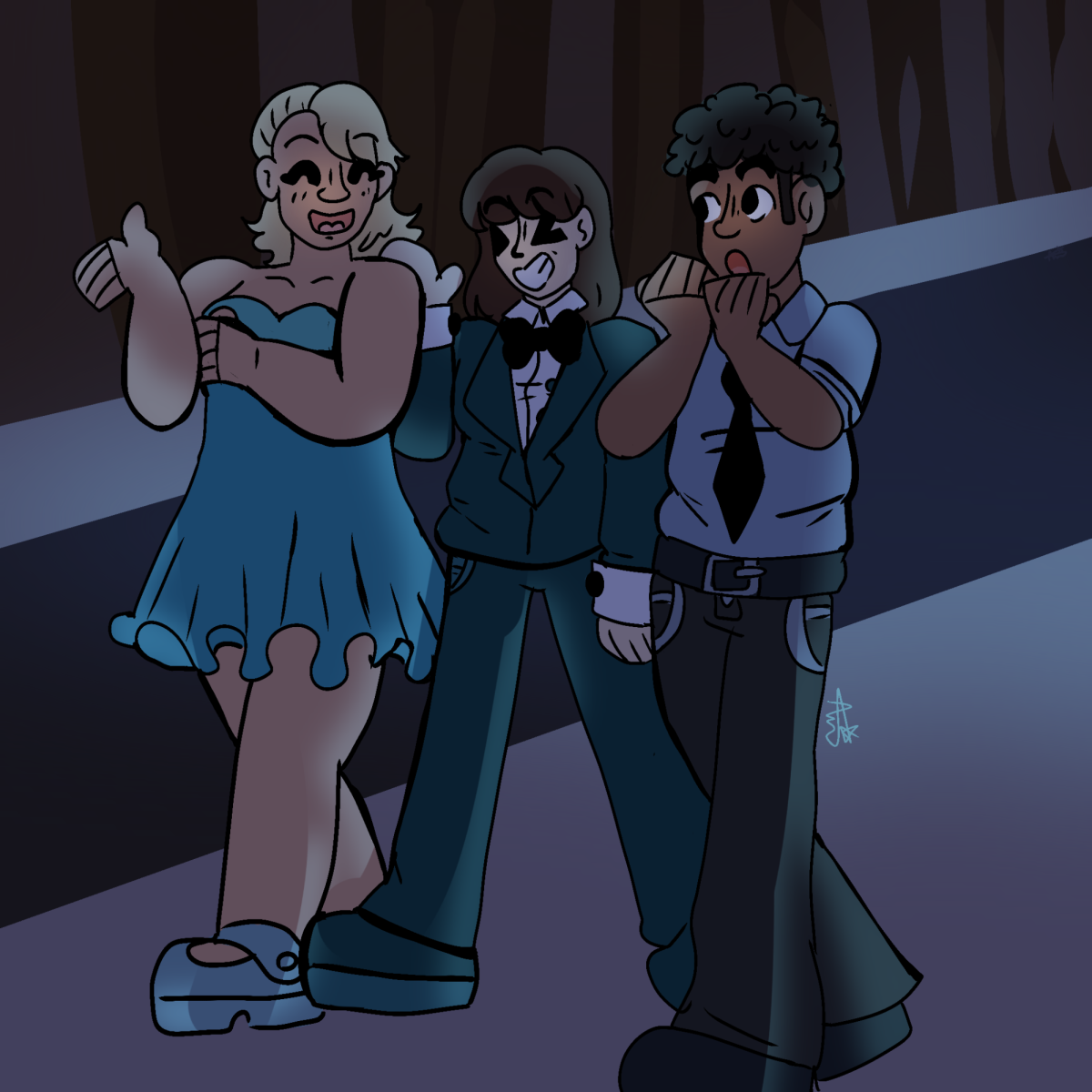
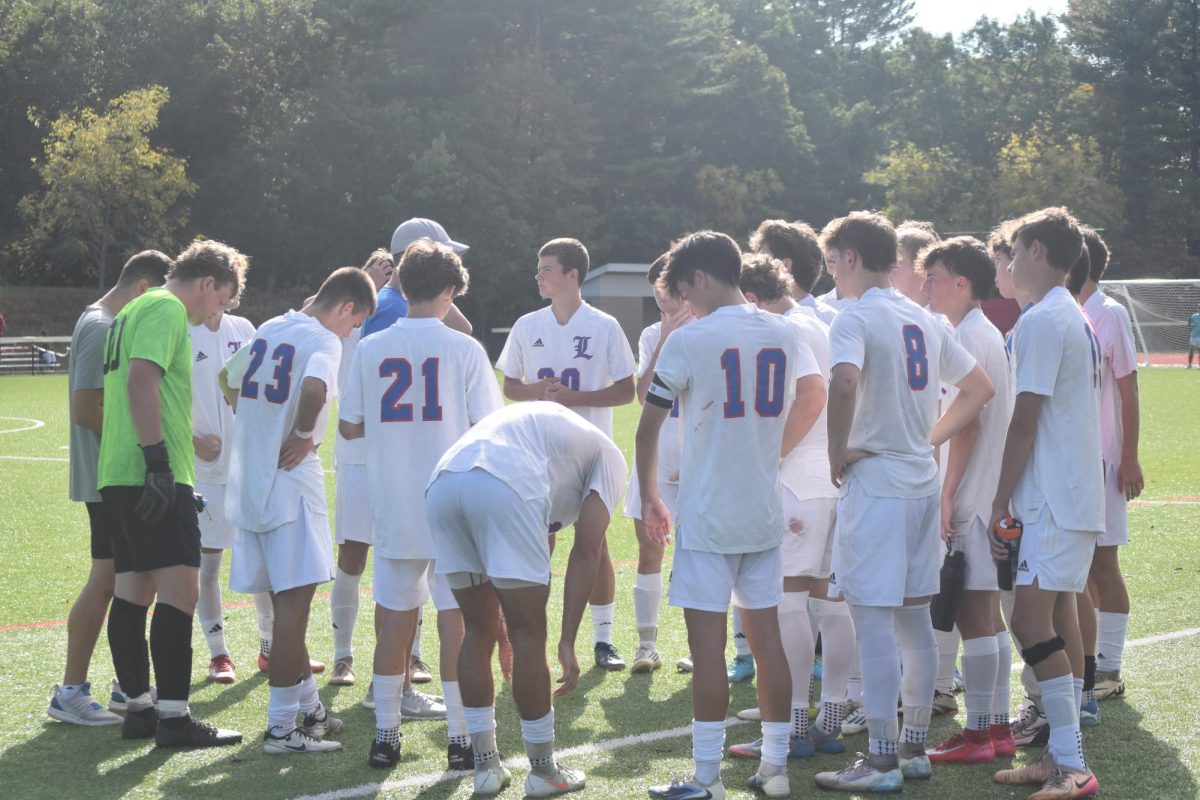
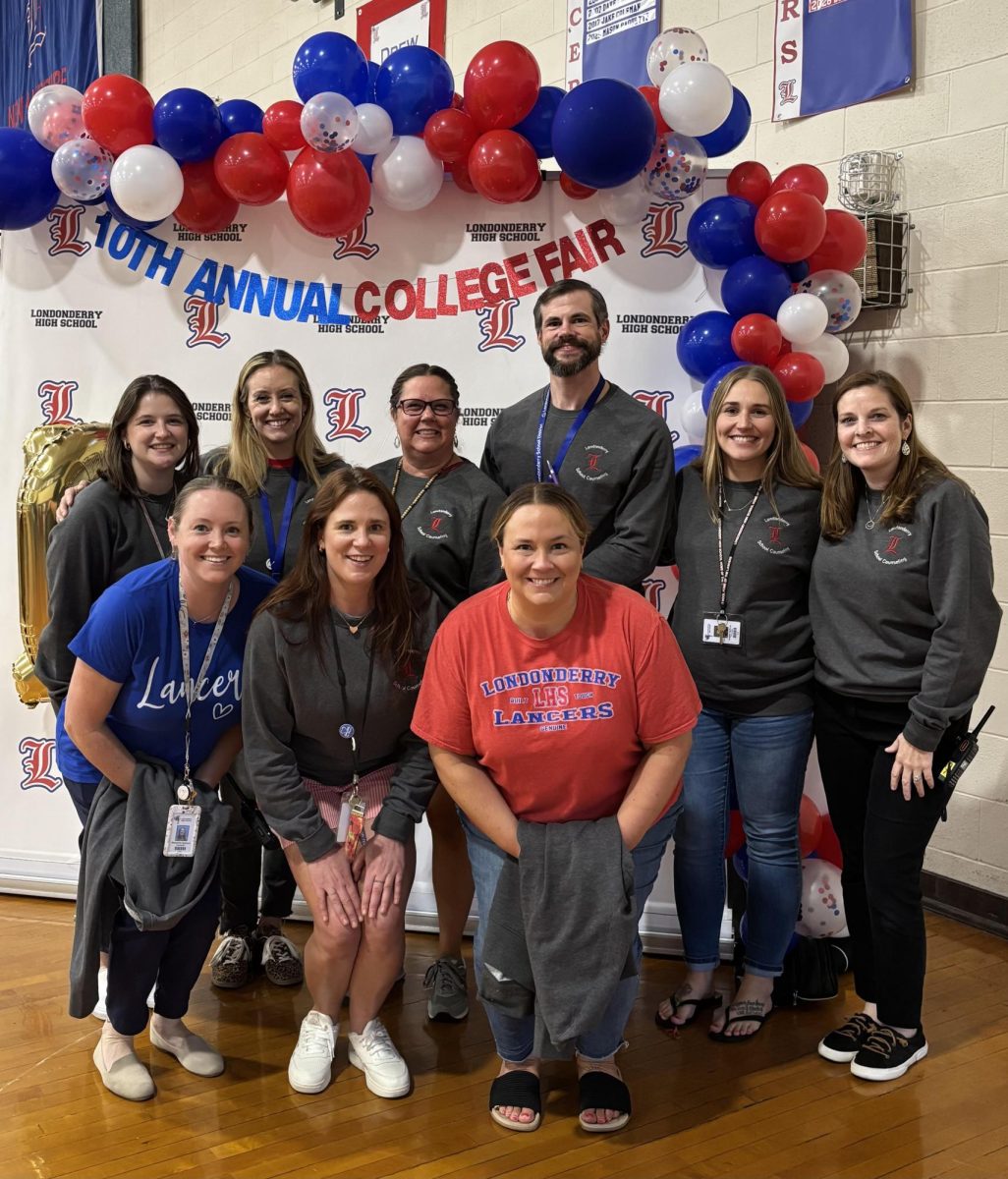
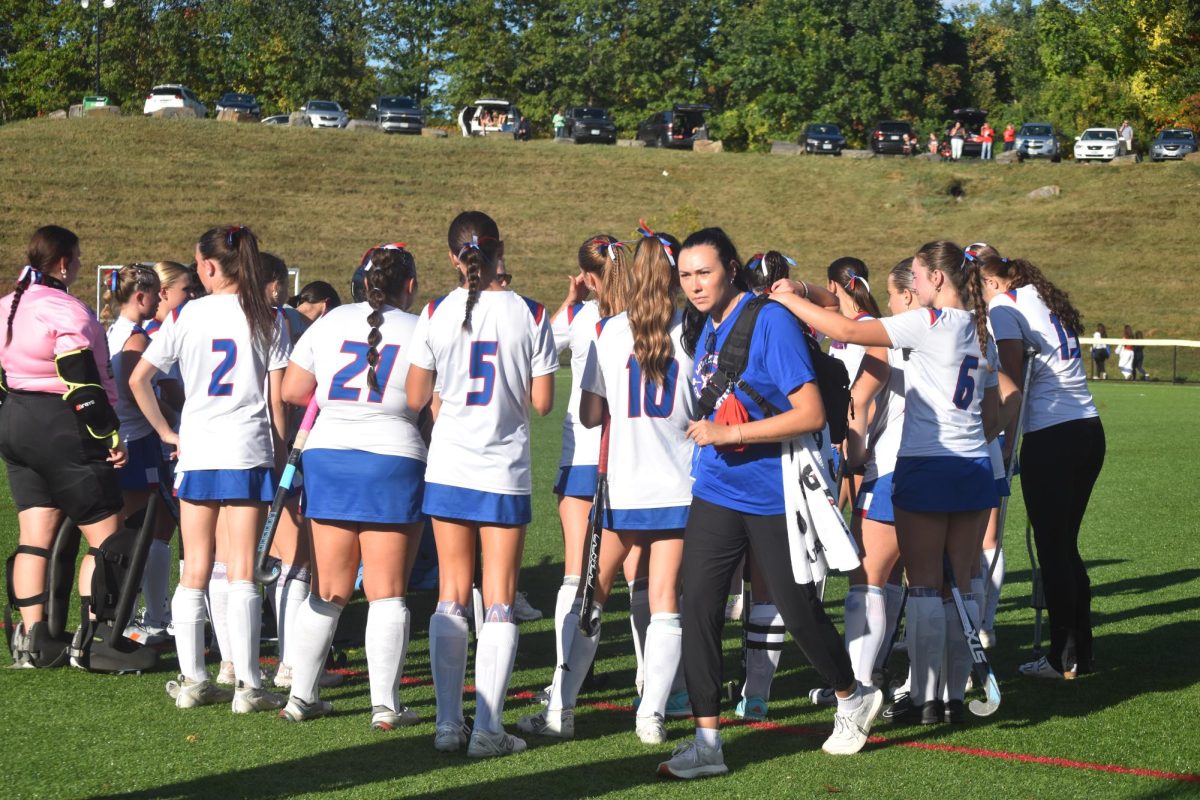
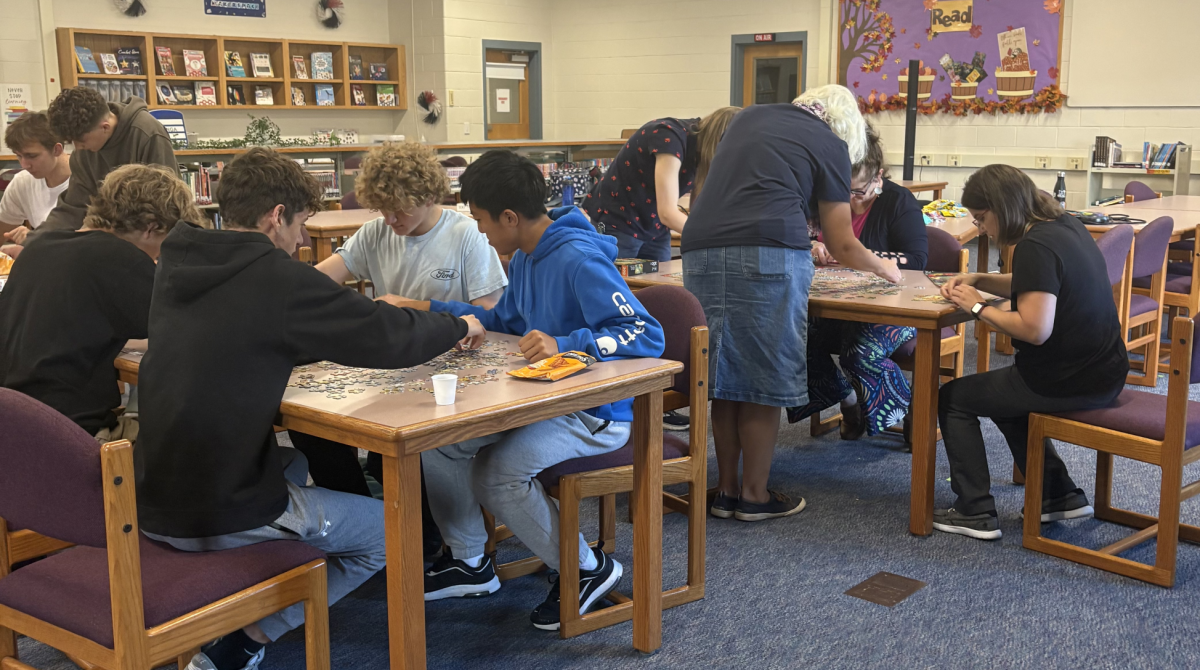
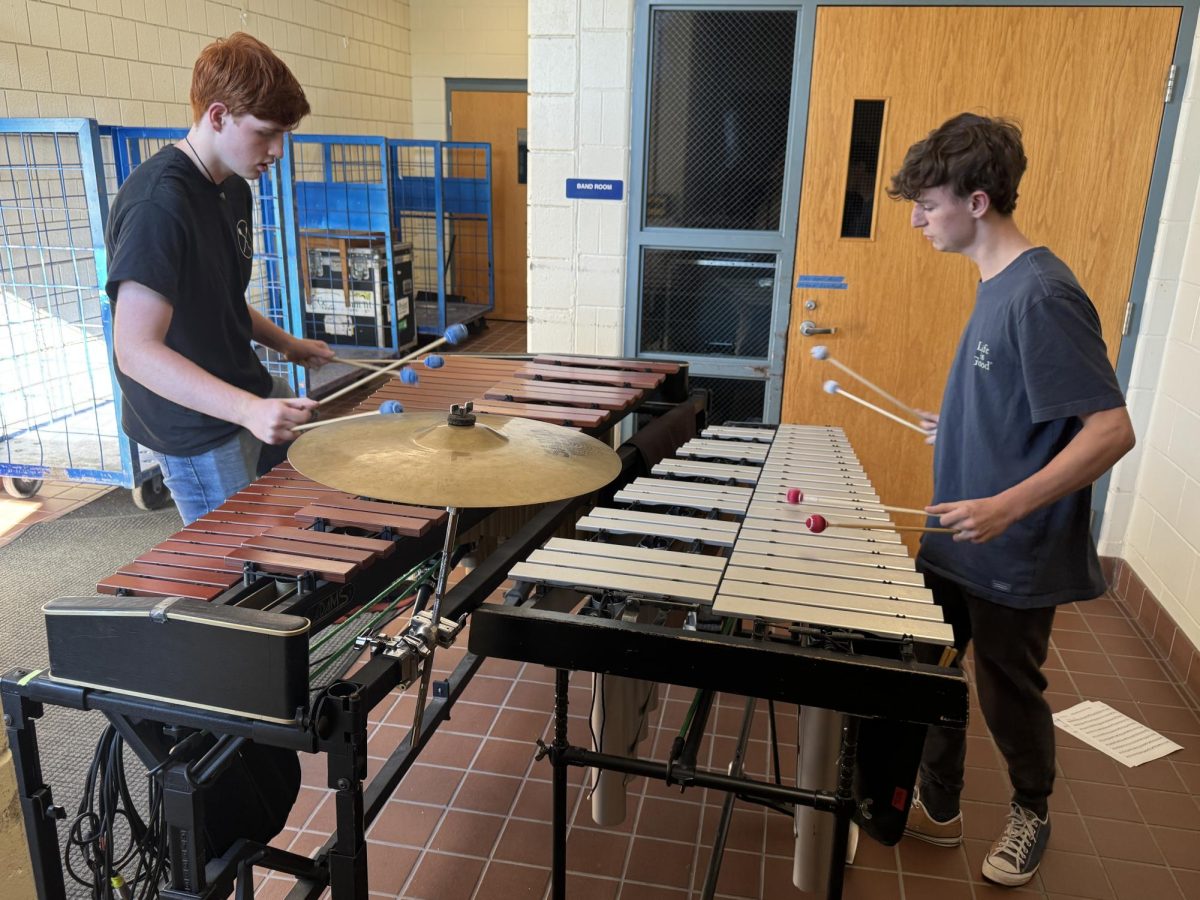


Anonymous
Jun 1, 2017 at 12:15 am
I think this article was really well written. As a former LHS student, I completely disagree with what Ms. O’Dea said about suicide being bigger than rape or bullying. Large reasons why people go through with suicide is BECAUSE of rape or bullying. Try saying that to someone who has been raped or bullied and I’m sure they will strongly disagree with that opinion. As much as I enjoyed my experience at LHS, I found everyone, including some teachers, to be very cliquey and associated themselves strictly with either the jocks or the popular kids more than others. Why would someone feel comfortable going up to a teacher and having a serious conversation with them when they don’t make an effort to get to know each individual student outside of class?
Sending out an e-mail was completely unnecessary. We already get enough suicide prevention awareness in todays generation that sending out an message with copied and pasted tips is just going to go over most parents heads as soon as they start reading it. If a parent had a problem with what their child was watching, they could easily find out by checking their Netflix account, or simply by asking them what they are watching. I don’t see why the school felt the need to send out an e-mail informing parents about this show when frankly, it is not their place to do so since this is something happening off school property.
Patricia Owens
May 28, 2017 at 10:04 pm
As someone who works in Journalism, I am impresssed that the teacher that runs the Lancer Spirit would encourage such a difficult piece. Certain topics can be challenging to address and the students appear to have done their research. The real world is not all winning the basketball tournament and the upcoming school dance. Awesome article, keep up the good work.
Adrienne Lafond
May 25, 2017 at 4:26 pm
Hello, I am a student at LHS and highly agree with Ellie Goodspeed and Lizy Stubbs. I don’t think that their point was to shame Mrs. O’Dea, I think that is was more to get their voices across about how suicide isn’t a new issue and the issues brought up in the show aren’t new either. I believe that Lizy and Ellie were writing wondering why now, with this show, that an email went out. They even stated ” Most shows popular with teenagers on TV or Netflix grapple with difficult topics like suicide, LGTBQ+ rights, rape, drugs or alcohol, but no show before “13 Reasons Why” has warranted an email home to parents.”
Yet, as a student with depression and being one who has struggled with suicidal thoughts in the past, I agree with Ian when he says that mental illness isn’t really talked about. Also, that some students treat it as a joke. It would be amazing if we, as a community, could work together to raise awareness on mental illnesses. I truly believe that some of the comments of ‘go kill yourself’ might be silenced. So those of you reading this that have uttered those three words, I would like to let you know that they do have an impact. I know that you must be thinking ‘but I say them as a joke’. That doesn’t mean that people won’t take it to heart.
I would also like to say that I am glad that this article was written. I’d like to thank Lizy and Ellie for being vocal, and pointing out things that I was saying myself. It has started a debate, and it also also brought up mental illness. It is rare that such a topic is brought up, and I am definitely overjoyed that we can hopefully realise that this maybe should be talked about more and it can better LHS.
Maureen O'Dea
May 25, 2017 at 2:43 pm
I applaud Ellie and Lizy on their opinion piece regarding an email blast that was sent regarding Thirteen Reasons Why series on Netflix. They bring up some very valid points and echo the questions many of us grapple with every day. Why this series and not others? What issues and events contribute to thoughts of suicide? How can lines of communication be opened on this and related topics? Why were students not included in the email blast? And most importantly, what is being done to address concerns and improve mental health at LHS? Although we may differ on the intention behind the email – Ellie and Lizy’s opinion piece is an important and welcome contribution an on-going discussion on how to help those in need and build mental health resiliency in our changing world.
In an effort to continue this important dialogue, here is my attempt to respond to these worthy questions.
Why this series and not others?
The decision to send this informational email had less to do with the particular series and more to do with an increased interest in the topic of suicide and timing. As noted, media outlets, print publications and surrounding schools were discussing the series as it relates to the topic of suicide. In light of the increased attention and timing of students leaving for spring break, I felt it prudent to provide information to increase awareness and potential resources should they be needed. Although I have not viewed the series, I did speak with fellow administrators and colleagues about the series (several of whom are parents in the district). The overwhelming consensus was a collective concern for students and a desire to support families. It is never easy asking someone “Are you going to kill yourself?” Again, the email was sent in an effort to increase awareness and provide resources. In my rush to send this out before students left, I neglected to specifically cite my source, the National Alliance on Mental Illness (NAMI). As an educator it is important to set a good example, I apologize for this lack of clarity and any confusion it may have caused.
What issues and events contribute to thoughts of suicide?
As Ellie and Lizy pointed out, there are multiple issues related to suicide. The Center for Disease Control (CDC) identifies a number of risk factors including: family history, previous attempts, history of mental health disorders, alcohol/substance abuse, sense of loss, hopelessness or isolation – just to name a few. As we can see, addressing these concerns is complex and ones we need collaborative efforts to address.
How can lines of communication be opened on this and related topics?
Despite the characterization of being ‘biased’ and ‘irresponsible’ – the goal of the email was never intended to stop people from viewing the series or read the book. The intention was to offer suggestions to help parents talk with their children about a challenging, complex subject. I purposely left my personal feelings aside from the email. Again, my goal was to pass along information from a credible Mental Health organization that could be of assistance to parents. Mental health is something that every one of us manages and utilizes in one way or another every day. To use the analogy of dental care – there are basic things we do to take care of and maintain adequate health. We as individuals are born with and/or have access to tools and habits (like daily flossing, brushing or access to counseling and esteem building activities). These help us either care for or deplete our mental health…or our pearly whites!
Shortly after the email was sent, I received many emails from parents, thankful for providing them with talking points as well as places for support. I share this only to highlight that school is often a primary or initial resource for families to access information. This is particularly important for families already dealing with mental illness and those that are in a position to build resiliency. Providing information is, in my opinion, neither biased, nor irresponsible. To the contrary – it’s what we do as educators.
Why were students not included in the email blast?
The reason students were not included in the email blast is quite simple; we do not have email addresses for them (yet). We have a mechanism in place for email communication with parents and employees. The IT Department in conjunction with the LHS technology committee are aware and working on a mechanism to include email communication with students. The suggestion of alternative methods of notifying students (such as intercom announcement or an assembly) is worthy of future consideration. Again, timing has a lot to do with how some decisions are made.
What is being done to address concerns and improve mental health at LHS?
Shortly after I arrived at LHS in 2014, the currently used mental health protocol was developed by the collaborative efforts of dedicated LHS staff members. It is an intervention tool designed to create continuity of care and support for students and families in a time of need.
With regard to prevention initiatives within the school setting, we had a large percentage of faculty and staff trained as Gate Keepers with the Signs of Suicide (SOS) program. We implemented a similar student focused initiative entitled: Acknowledge, Care, Tell (ACT). Both of these programs aim to educate and provide strategies to address individuals in need.
As I shared with Ellie and Lizy, in addition to building based initiatives, we continue to work on opportunities at the district and community based levels. All of these are with the goal of increasing dialogue and providing information to parents and students addressing a variety of topics.
For example, on May 4th at South School, the Londonderry School District hosted “Change Directions: Know the Five Signs” with New Hampshire’s own Judge John Broderick. The presentation focused on increasing awareness of signs of mental illness and frontline intervention strategies. Additionally, LHS staff hosted a community forum on substance misuse which unfortunately was poorly attended. LHS School Counselors distribute a monthly newsletter providing information on a variety of topics such as dating violence, drugs, alcohol, depression, and anxiety as well as college and career ready initiatives. Can we do more? Absolutely! And we welcome your contributions in the development of future mental health initiatives.
A number of people have asked me if I would send the email again under the same circumstances. Yes! Absolutely! Although I found the tone of some portions of the piece to be unduly harsh and misinformed, I do whole-heartily appreciate and respect Ellie and Lizy’s willingness to voice their opinions. It is my hope that the dialogue on mental health issues will continue, in a collaborative and affirming manner.
I look forward to reading Ellie and Lizy’s next opinion piece – maybe offering why the series is worth watching. Perhaps I will be convinced to watch it.
Anonymous
May 25, 2017 at 11:01 am
Although I do not entirely agree with some of the opinions in your writing, it was nice to read something different for once. I hate to be the bearer of bad news, but no one is going to remember the articles on the various tickets or t-shirts sold during school lunches. Nearly every story on this website is purely informational. This is the first piece of writing from this publication (at least that I have seen) that has actually started a conversation or debate. That being said, Ms. O’Dea was certainly undeserving of the treatment she received in your article. Just as your title states, she had good intentions. She did not mean to insult the student body or anything of the like. At the end of the day, though, your article is praiseworthy. It has ignited a debate and reflection on how LHS handles mental health issues, something far more important than sports, fashion, or the majority of other topics on this website.
Anonymous
May 25, 2017 at 7:34 am
As someone who has watched the show, binge watched it like everyone else, and related to the topics tackled by the show in many ways, I can 100 percent say that the idea that this show romanticizes suicide is not true. It shows every gruesome detail of events that can lead to this tragedy, and these events should be more well known. Ms. O’ Dea’s email caused my parents to freak out at me for watching the show. Personally, and I know I speak for much of the LHS student body here, at least the ones I know, I think the school shouldn’t be able to try to control what we want to watch, and definitely should practice what they preach. We as students have been taught almost tirelessly everyday to not plagiarize, and with the new uses of websites like turnitin, it is still a topic that the school touches on on a semi-daily basis, so when one of our teachers, who we appreciate and are very grateful for, does something they have been teaching us not to do for years, it’s obvious to me why there would be a backlash about this. The show 13 Reasons Why, although controversial, should not be something that needs to be tackled by the school. At this point in a person’s life, they should be able to rationalize whether or not to actually watch the show.
Iain Ferguson
May 24, 2017 at 3:38 pm
As a senior of LHS and someone who has depression and has been dealing with suicidal thoughts since middle school, I feel as though we, as a school, don’t do enough to fully grasp the idea of many mental illnesses. The only time that mental illnesses have been discussed was during freshman year health class. The kids in the class weren’t engaged and it felt rushed along with all of the other topics that we had to cover. The only other time that I can recall was during my sophomore year. After a class-wide test, we had gathered in the gym for an assembly about depression, suicide and topics that are akin to these. I didn’t want to go specifically because I knew how my classmate would react to this. A lot of these students made fun of, mocked, and belittled these issues. Still, to this day, I hear students in the halls say things like, “go kill yourself,” and using mental illnesses as a joke.
I feel as though the entire school district, especially the high school, should be more proactive on these topics, instead of reactive as it has been. The more kids understand these problems, the better help that Londonderry can provide it’s students. I know the response to this is often, “If you want something like this done, you have to do it yourself.” The amount of stress that it takes to create something that helps is much more than many students, who actually want to provide this, can handle. It’s very hard to accomplish, alongside classes, homework, sports, your own mental problems(if you happen to have any), and family life.
Mrs. Shank
May 24, 2017 at 12:10 pm
Upon first reading Mrs. O’Dea’s email, I was intrigued, and like many, binge watched the show as soon as I found the time. I actually came away feeling like the email misrepresented the show saying it “romanticized” many elements and was “misleading.” Sadly, I think the series captured many things all too accurately. Each episode stirred in me new emotions: fear for my students, anger regarding bullying, heartbreak for the rejection and assault I know my students are dealing with, and the feelings of desperation I deal with every day wanting to help those battling depression and suicidal thoughts. I personally don’t think the show “romanticized” anything. And for that, I really disagreed with the tone of the email.
WE do need to deal with these concerns everywhere, including right here at LHS. These are issues seniors are concerned with; these are issues 5th graders worry about. WE can do more. WE can work harder. WE can put in place better policies. Knowledge and action are key…instead of chastising the system, WE need to work to revise the system.
But, your article was also about a staff member at LHS…
1. Mrs. O’Dea may have cut and pasted information, and you are 100% correct, it could have been cited. But this was information directly from sites meant to be informative for guidance directors and administration. In the resources list, much of this same information could have been gathered. At the very end of her email, she also included two direct links to additional sources.
2. Mrs. O’Dea shared information without personal opinions included, and there is nothing wrong with that. It’s no different than me teaching a topic, but not choosing to share my true opinions about it; maybe I don’t really enjoy teaching Jane Eyre, or poetry isn’t really my thing. I am still educating my students because that is my job. She is still informing the population because that is her job.
3. Mrs. O’Dea did not state that LHS disagreed with viewing the show-there was nothing about the opinion of LHS at all. The email was informational only and was riddled with phrases reiterating that fact: “we are notifying you of this event to enable you to make informed decisions;” “we are enclosing an outline of suggestions;” “it is intended only to provide you with information we feel is relevant;” “the outline is offered for your consideration;” “below are several suggestions.”
4. Should students have been notified? Absolutely. How? An announcement would have been easy. Maybe a handout in classes or even posted in the hallways and/or bathrooms, etc. An email blast to students-I bet with a little work from the X2 gurus that could have happened. You are right-students should have been included. But, do not assume this email was meant to be “condescending.” It never states that students are “unprepared to discuss these topics.” It was not sent ‘ONLY TO PARENTS’ to purposely go “over your heads” or “make you feel out of the loop.”
The popularity of this show was at an all-time high at the end of April. Perhaps, timing was the consideration when the email was sent: 12:28 on the Friday afternoon before April vacation. Timing might have been against a staff that cared about students that would be home all week with nothing to do but binge watch a show that literally ripped my very core out.
Have I been the victim of emotional and mental abuse? Sadly, yes. Have I dealt with suicide? Yup, when one of my best friends in college decided they couldn’t deal with another day. Have I been bullied? You would be horrified to hear of my experiences. Is depression something I struggle with? Yes, every day. Maybe, just maybe, there was a ‘rush to get this information out’ because there was a ‘rush of emotion’ and a ‘rush to act’ from our administration.
5. Lastly and I think most importantly, slandering a faculty member here at this school with words like “careless”, “irresponsible”, and “unprofessional” seem harsh to say the least. Can we find some faults in this email blast that went out? We sure can. Could things have been done differently? 100%.
But, to use words like these to tear down a member of our Lancer community hurts. You know why? Because we ALL work tirelessly teaching the things we know matter the most to our student body. Because we ALL make unending efforts to shelter our student body and prepare you the best we can. Because we ALL would do anything necessary to keep our student body safe and happy and living out each day for the blessing that it is. We, your LHS staff, reflect collectively the mission of Londonderry High School and when you tear one of us down, you are really tearing us all down.
Dan Guenther
May 24, 2017 at 10:22 am
As a parent, I found the LHS email informative (which is good) and sensational (which is bad). A serious Netflix series like “13 Reasons Why” provides a valuable opportunity for parents, students, and school personnel to discuss challenges that many high school students face in their lives and to come up with better support. I agree with the opinion writers that if this issue warranted parents receiving an email, then there should also have been timely announcements and discussion with students at LHS.
As for the “sensational” aspect of the email, the tone and content was a bit like receiving a Homeland Security announcement of an elevated level of terrorism risk, with the culprits known and at large. I don’t blame Ms. O’Dea for this per se, I believe most of the criticism belongs to the various professional counseling associations that declared viewing “13 Reasons Why” on Netflix to be a mental health risk and that provided their members with “cut and paste” bullet points and lists of available resources. High schools around the country issued similar email alerts, with many newspapers mentioning the emails – prompting readers to worry that a wave of copycat suicides had begun.
While I’m an advocate of investigative journalism and very impressed with the research efforts shown in this opinion piece, I would also like to have heard other school administrators’ comments about “13 Reasons Why”, the email, and the lack of a school assembly. Hopefully, your opinions will lead to a school assembly, greater awareness of challenges faced by students, and even better support in the upcoming academic year.
Respectfully,
Dan Guenther
Mr. Choquette
May 24, 2017 at 10:17 am
I would like to compliment these students on the strength of their argument and their willingness and resolve to carry through with what they believe strongly in.
At LHS we strive to make our students free thinkers, and tell them the importance of sticking to their beliefs and making sure that if they are going to say something that they are able to back up what they say with facts. I think these young women have done exactly that. In addition, I respect their resolve to carry through with something that might be considered controversial.
LHS is a fantastic place to work, and I have really enjoyed the students I have had the opportunity to know and hopefully move forward to adulthood. It is a great family atmosphere, but at the same time even families need time for reflection and can improve. Everybody in a family has individual strengths and weaknesses, but to pretend these do not exist makes no sense. Only in reflecting upon what makes us weak or strong can we improve and make this the best darn school for our students.
We as teachers and administrators are there for the kids, and they as the consumer have a right to question what we do.
Jon Rich
May 24, 2017 at 9:04 am
This is an embarrassment and the fact that this article was actually sent to print is shameful. It is not the job of the school newspaper to evaluate job performance of any staff members at LHS, including administration. Those duties are set aside for more qualified individuals. If someone can point out how this ADDS to LHS and it’s culture, I’m all ears…..
~ Mr. Rich
Crystal Rich
May 24, 2017 at 7:51 am
Dear Ellie and Lizy-
As a staff member at Londonderry High School, this article saddens me. Maybe the title of your article falls short- Good intentions? Mrs. O’Dea did have good intentions- maybe the implementation, in your opinion, was poor however I find your last statement ironic – “As Clay says in the final episode, “We have to do better. The way we treat each other. We have to look out for each other. It has to get better somehow.”- maybe you should have considered treating her better in this article.
If there is one thing that is special about this school it is that we look out for each other- please keep that in mind next time you decide to state your opinion by shredding an educator or administrator in this school. We are all here for you, even if you don’t believe it.
Mrs. Rich